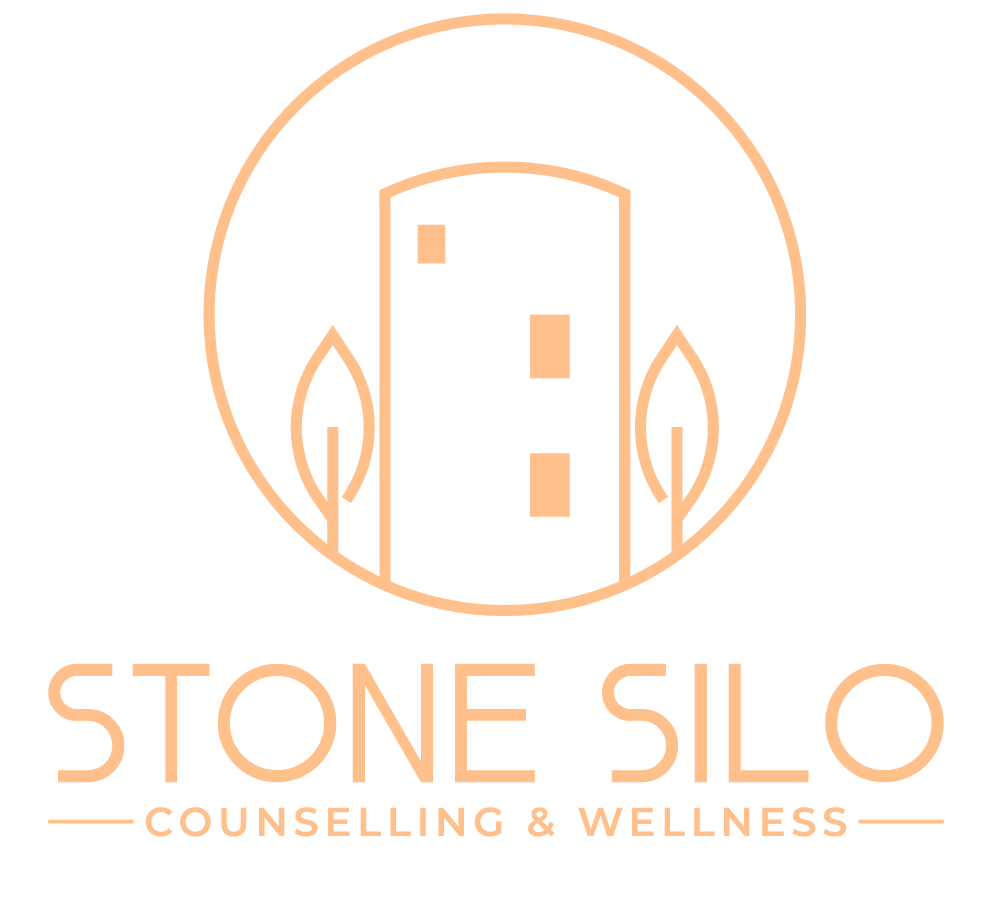We don’t talk about men’s mental health nearly enough. And when we do, it’s often with outdated ideas of what it means to be strong, capable, or “fine.” At Stone Silo Counselling & Wellness, we see every day how real men show up in therapy not because they’re broken or weak, but because they’re human.
This blog is for the fathers, sons, partners, brothers, and friends who carry more than they let on. It’s for the men who feel isolated, overwhelmed, numb, or angry, and aren’t sure where to start. You’re not alone. And your mental health matters.
🚹 The Hidden Struggle: Why Men Don’t Always Reach Out
Mental health challenges affect men just as much as women, but they often look different.
While women are statistically more likely to be diagnosed with anxiety or depression, men are more likely to underreport symptoms, delay seeking help, and experience higher rates of substance use and suicide (American Psychological Association, 2019). In Canada, 75% of suicides are completed by men (CAMH, 2023).
Why the gap? For many men, early messages about masculinity reinforce stoicism, self-reliance, and silence. Talking about emotions is often framed as weakness or worse, dismissed entirely.
As a result, men may show their pain in ways that are less often recognized as mental health issues:
-
- Irritability or anger
-
- Workaholism or withdrawal
-
- Substance use or risk-taking
-
- Physical complaints (e.g. fatigue, sleep issues, body pain)
These patterns are coping mechanisms, but they don’t offer real relief. That’s where therapy can help.
💬 Benefits of Therapy to Men
Therapy isn’t solely about talking about your feelings, unless that’s what you choose. It’s focused on learning to:
-
- Name what’s happening inside you so it doesn’t control you
-
- Develop tools to manage stress, anger, or sadness
-
- Make space for healthy relationships with yourself and others
-
- Redefine strength as honesty, self-awareness, and emotional agility
Therapy can feel uncomfortable at first. That’s normal. But discomfort is often the first step toward something better.
In fact, when men do engage in therapy, research shows they benefit just as much, if not more than women in terms of reduced symptoms, improved coping, and healthier relationships (Mahalik et al., 2012).
🔄 Reframing Masculinity: Strength Isn’t Silence
Let’s be clear: vulnerability is not the opposite of strength. It’s the foundation of it.
Healthy masculinity includes emotional expression, empathy, and the courage to ask for help. It doesn’t mean losing your identity; it means broadening your abilities.
In a culture that still sometimes shames emotional openness, therapy gives men a place to:
-
- Speak without judgment
-
- Learn skills they were never taught
-
- Reconnect with what really matters: meaning, relationships, and peace of mind
Therapy also supports identity work, exploring how upbringing, culture, or past experiences have shaped your current beliefs about what it means to be a man (Addis & Mahalik, 2003).
🧠 Common Topics Men Bring to Therapy
-
- Workplace burnout or chronic stress
-
- Anger management and emotional regulation
-
- Relationship and family concerns
-
- Loss, grief, or life transitions
-
- Identity and self-worth
-
- Substance use and addictive behaviours
-
- Loneliness and disconnection
You don’t need to hit “rock bottom” to start therapy. Sometimes, all it takes is noticing: I’m not okay. And I want to be.
🌿 Why the How Matters: Finding the Right Fit
Many men find that non-traditional therapy formats feel more natural like:
-
- Walk-and-talk sessions in nature
-
- Group therapy with other men navigating similar challenges
-
- Solution-focused or skills-based approaches that feel active and practical
At Stone Silo, we offer these formats alongside traditional one-on-one therapy, so you can choose what feels right for you.
And yes, talking is part of the process. But you’re always in the driver’s seat. You set the pace. You choose what to bring into the room (or out on the trail).
👥 Meet Alex: Supporting Men’s Mental Health in Listowel
If you’re in the Listowel area, Alex Boersen, MSW, RSW, offers thoughtful, down-to-earth support for men navigating stress, trauma, addiction, and identity challenges. With a special focus on men’s mental health, youth emotional regulation, and service-oriented careers, Alex brings a grounded, compassionate approach rooted in real-life experience. He works with individuals aged 16+ and offers a range of modalities including ACT, CBT, Narrative Therapy, and more.

Alex Boersen
Master Social Worker, Registered Social Worker - He/Him
My specialties: ACT, CBT, Narrative Therapy, Trauma, Motivational Interviewing, Brief Solution-Focused Therapy
Age Group: 16+ year olds
Serving: Listowel
Price: Individual – 50 minutes – $185
Alex is a Registered Social Worker with a Master of Social Work degree from Wilfrid Laurier University. He brings a broad and diverse background to his clinical work, having supported individuals across a variety of settings, including elementary schools, group homes, hospitals, and crisis response teams. He has worked directly with unhoused individuals, first responders, and healthcare professionals, and has served on Crisis Response Teams in emergency departments across Huron and Perth Counties. His work alongside the Ontario Provincial Police (OPP) and Stratford Police Service has deepened his understanding of the emotional complexity and chronic stress faced by those in high-stakes helping roles.
Originally from rural Perth County, Alex was drawn to the field of social work through his own lived experiences with mental health. He brings empathy, groundedness, and curiosity to the therapeutic process, creating a space where clients feel safe to explore challenges, identify patterns, and take meaningful steps toward change.
Alex works with adults, teens, and first responders dealing with addiction, anxiety, depression, anger, trauma, and relational conflict. He is especially passionate about men’s mental health, youth emotional regulation, and supporting individuals navigating the stress of service-oriented careers. His approach is collaborative and integrative, drawing from a range of evidence-based modalities including Acceptance and Commitment Therapy (ACT), Cognitive Behavioural Therapy (CBT), Motivational Interviewing, and Brief Solution-Focused Therapy. He also incorporates mindfulness-based interventions and somatic-informed techniques to support regulation, self-awareness, and reconnection with the body.
Alex has completed advanced training in CBT for Trauma and has completed certification in Eye Movement Desensitization and Reprocessing (EMDR), which he has begun integrating into his clinical practice.
Outside of his work, Alex enjoys spending time with his wife, newborn daughter, and their two dogs. He stays active through Brazilian Jiu-Jitsu, weightlifting, running, camping, and fishing. These practices help him stay grounded and connected to his own values—something he encourages his clients to explore in their own lives.
Alex believes that therapy should be a space rooted in honesty, openness, and the courage to try new approaches. He invites clients into a therapeutic relationship where growth is supported, strengths are honored, and healing becomes possible.
📍 Getting Started at Stone Silo
We’re here to make that first step easier. Whether you’re ready to dive in or just curious, you can reach out for a no-pressure conversation with one of our therapists. We’ll match you with someone who understands men’s mental health and is committed to building a space that feels safe and collaborative.
We also offer walk-and-talk therapy, which some men find to be a more relaxed and approachable option than traditional in-office sessions.
💛 Final Thoughts: You’re Not Alone
If you’re reading this and thinking, maybe therapy could help me, then you’re already doing the hard part, acknowledging that something needs care.
Real strength is facing reality, not pretending everything is fine. And sometimes, the strongest thing you can do is ask for help.


